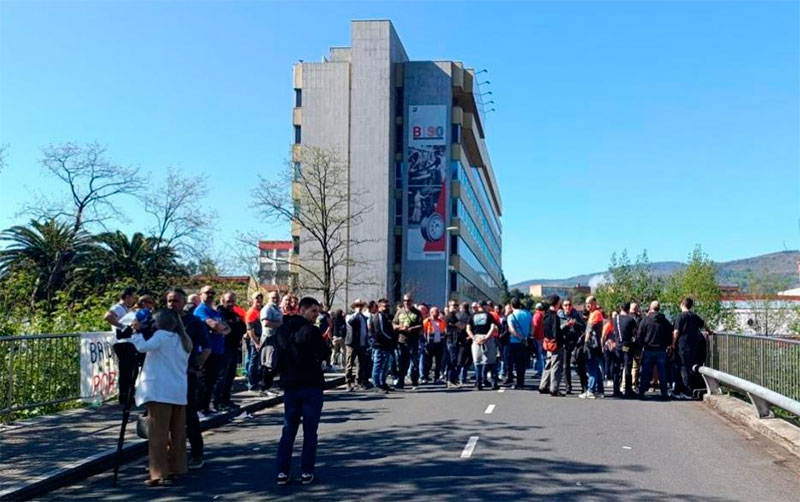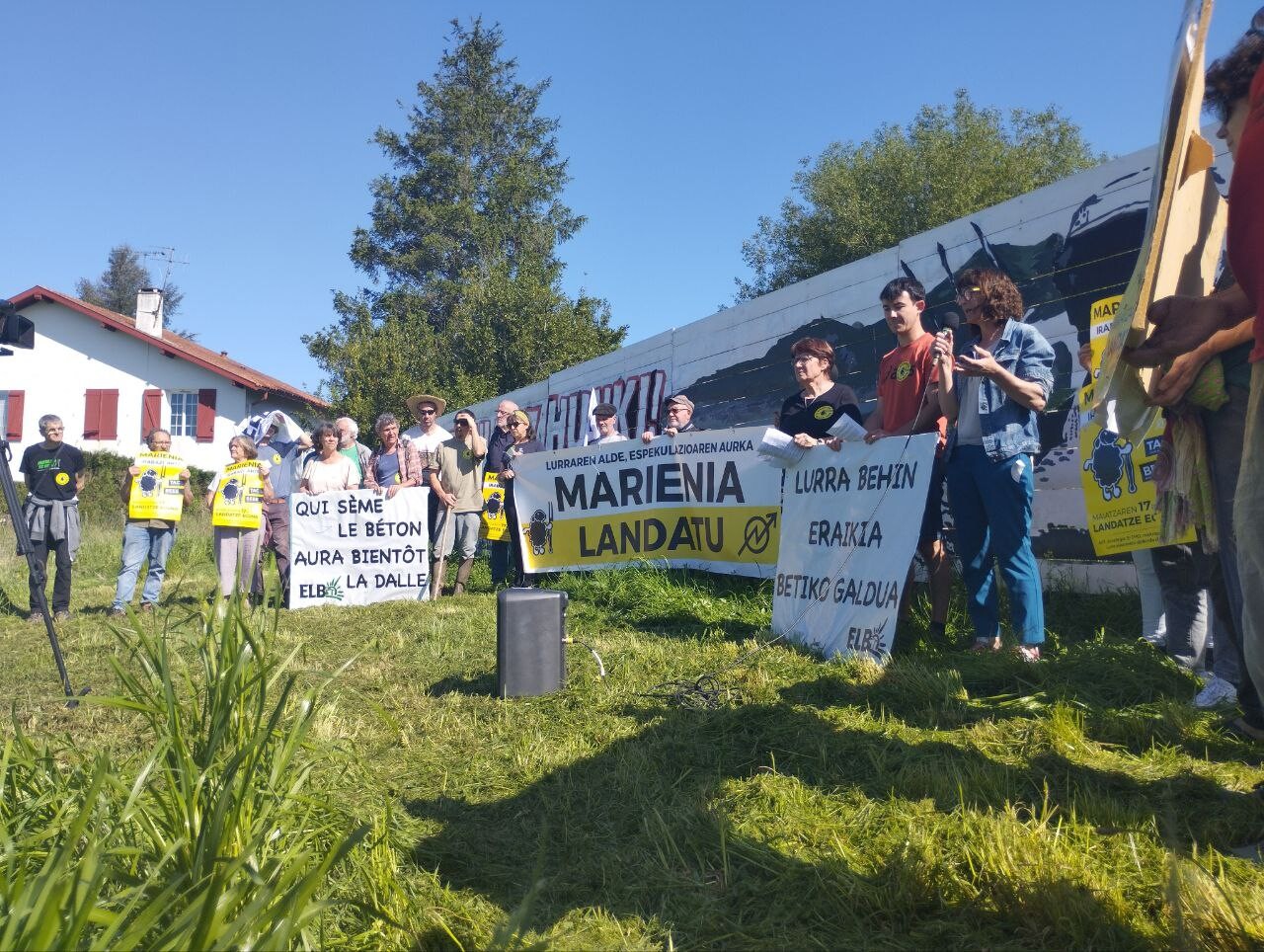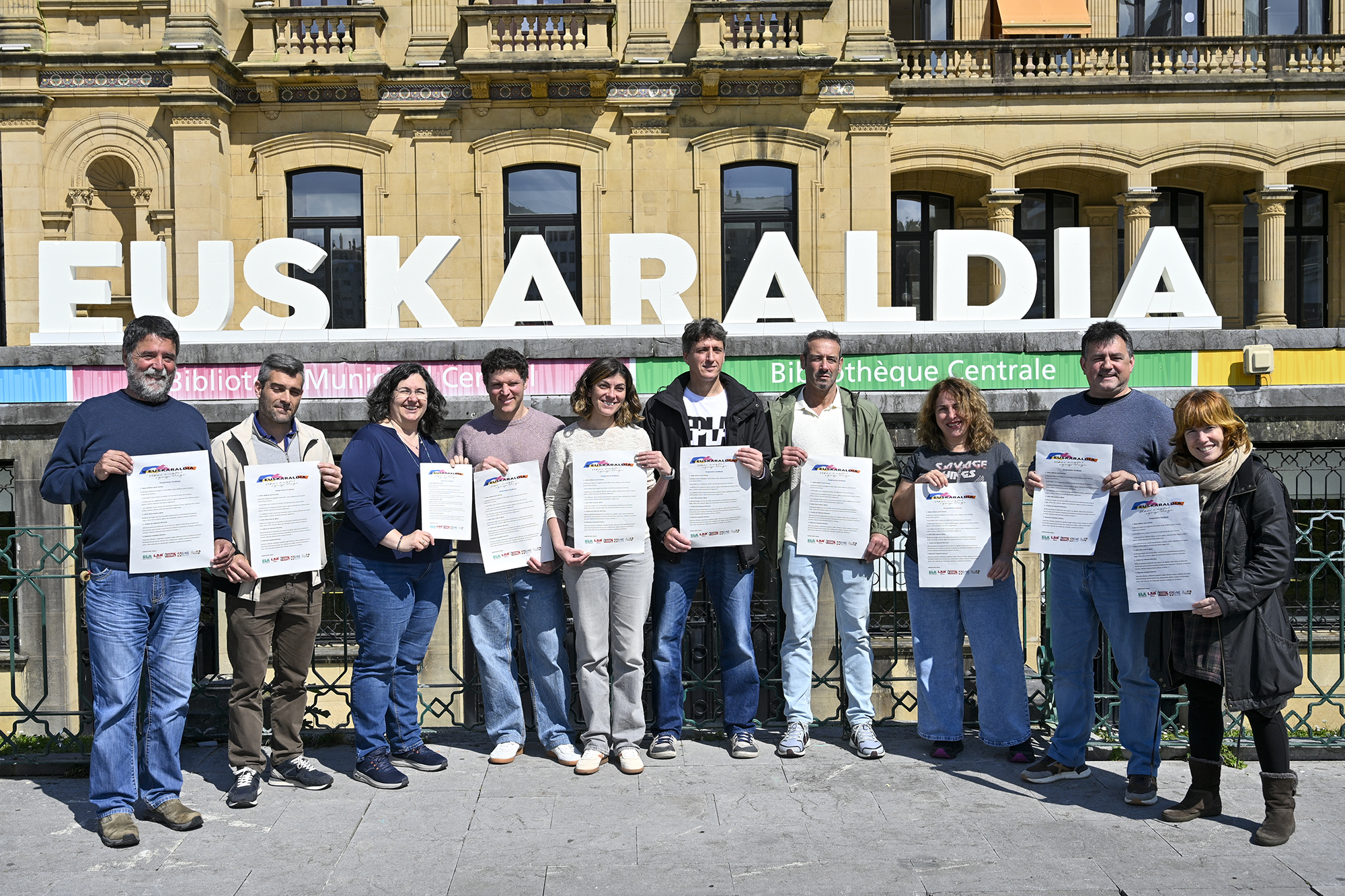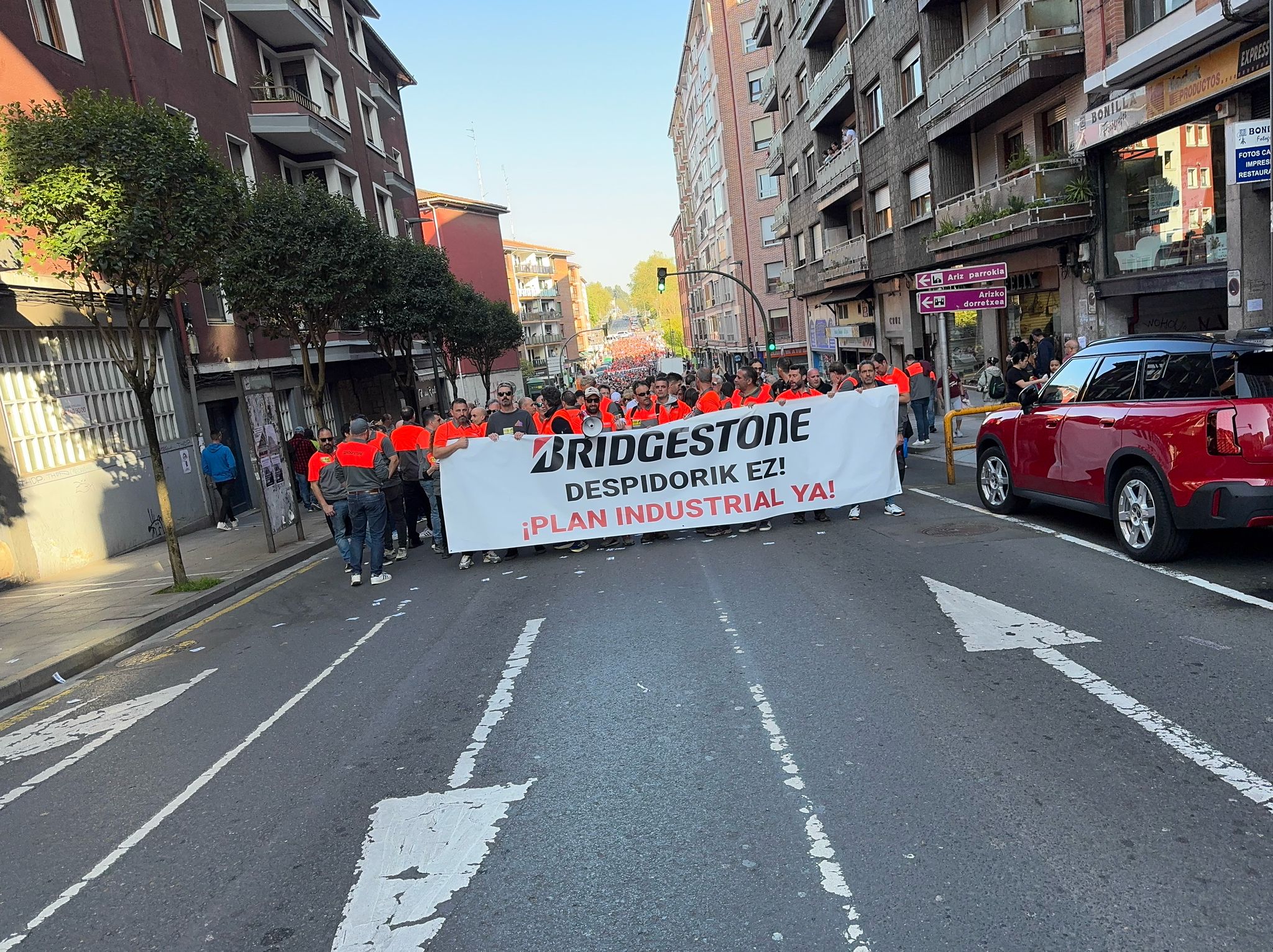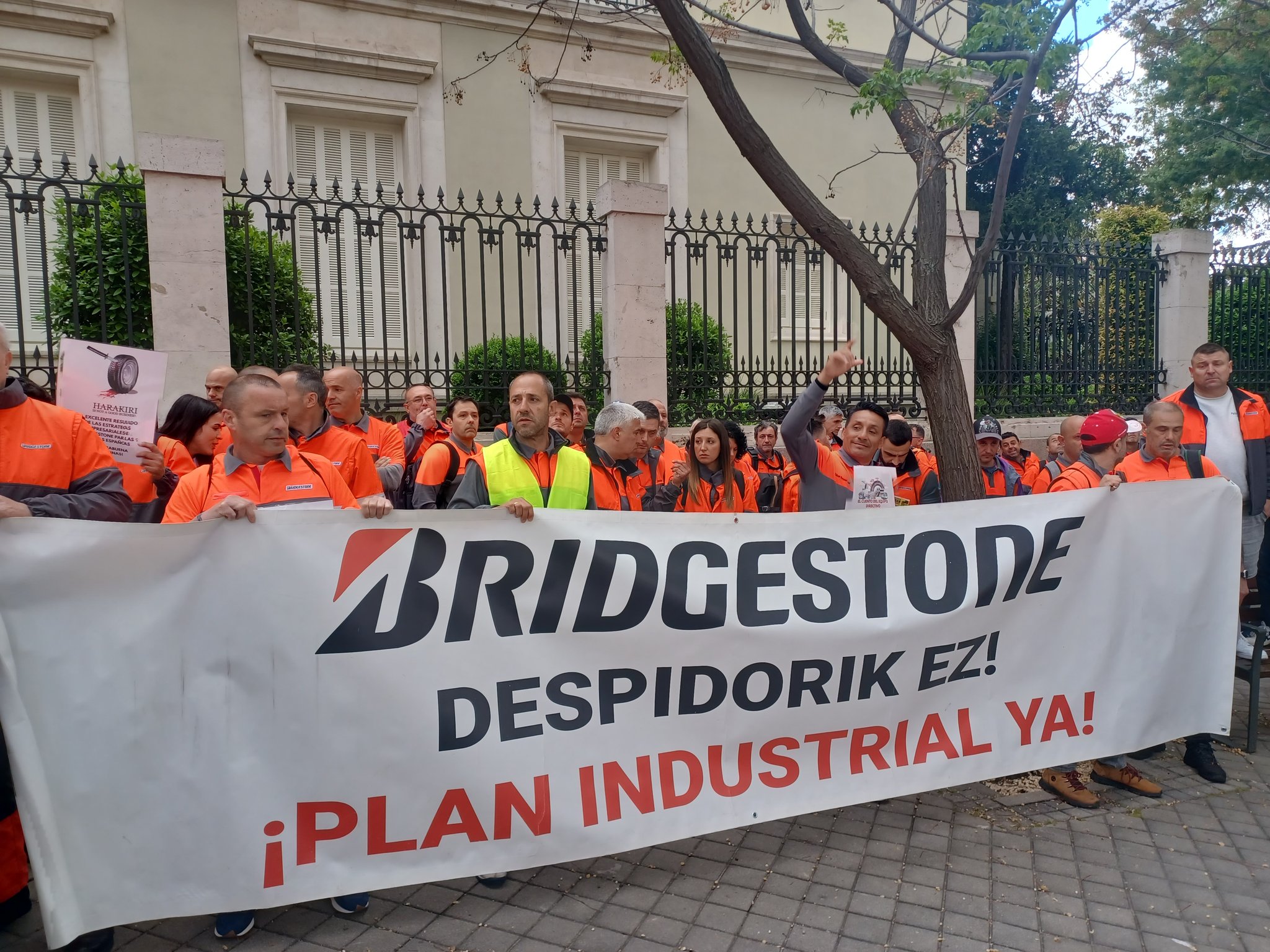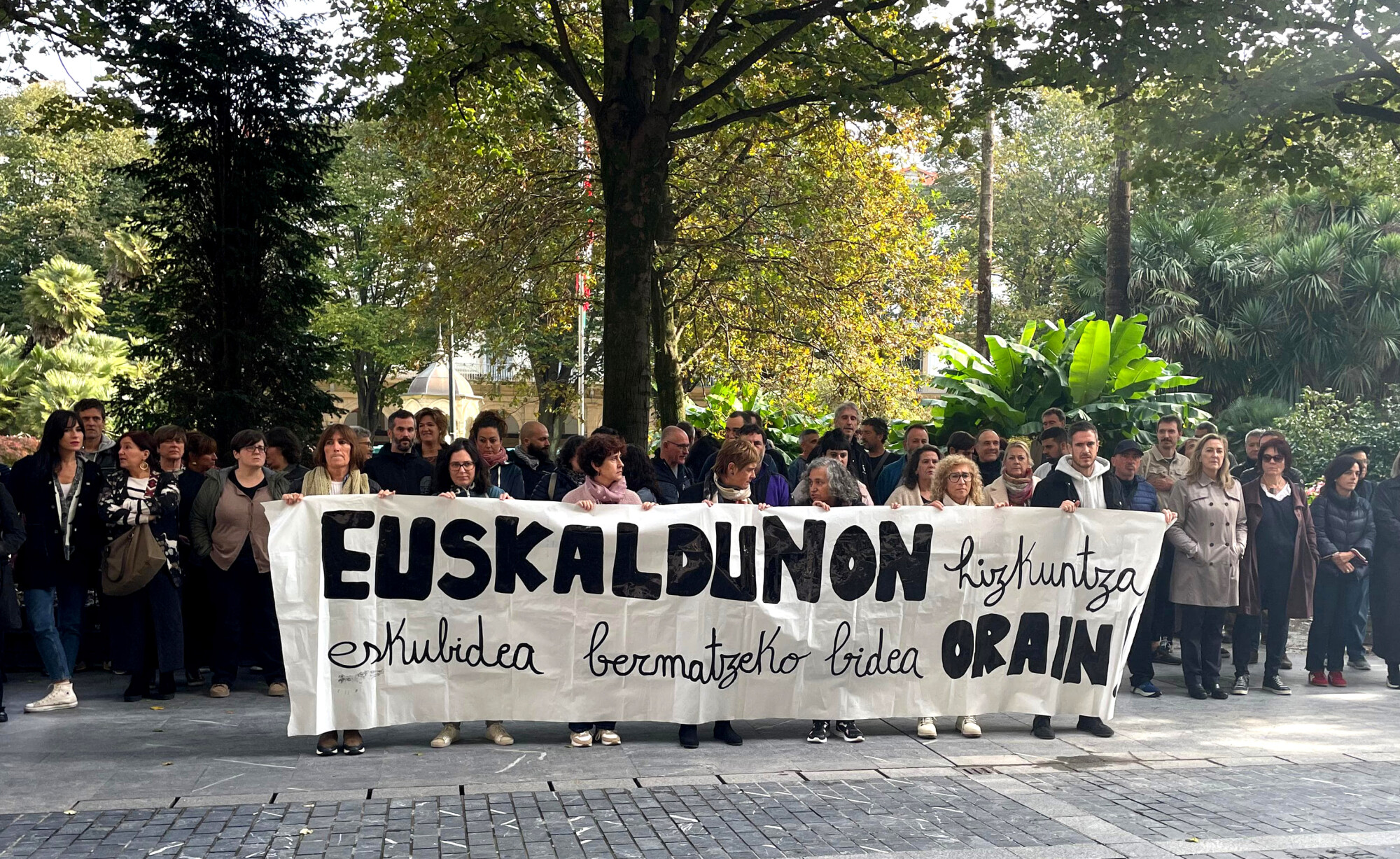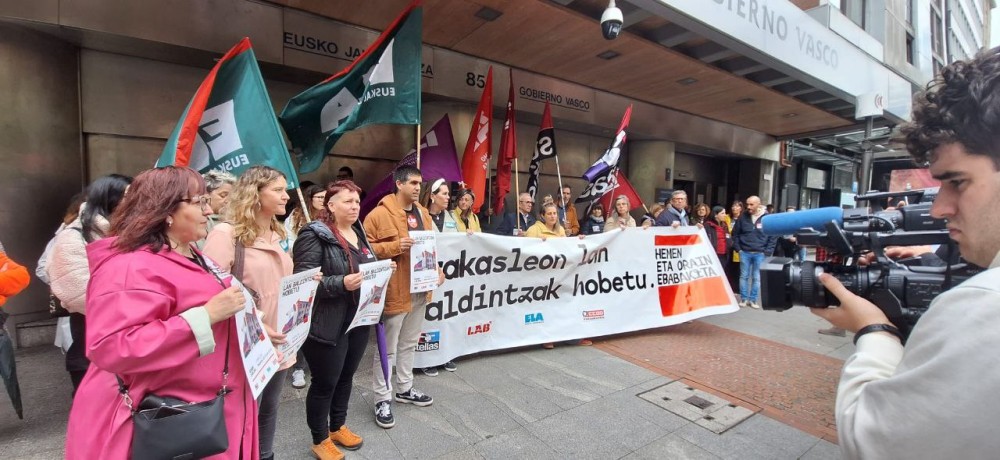"This male figure, which we have very mystified, does not respond to the concept of working people nowadays"
- The Basque workers. Thanks to the scholarship from the IPES Foundation of the Old Regime to Capitalism, Oinane Valero Belasko stresses that this is a collective research work. The professor of history (he is working this year at Erandio, at the ESO) tells us that so far there has been no work contemplating triple oppression and that research is a starting point for further work in the future.

Where does the process of developing capitalism begin?
We have placed the founding process of capitalism in 1789, the year in which the French bourgeois revolution took place. Above all, Ipar Euskal Herria is going to have a direct influence, and there begin all the changes that capitalism, industrialization and liberalism will bring.
What would be the main changes?
Structure of paid work. Capitalism has led to the generalization of paid work and the creation of a dichotomy: for women, what we call “no work”, or work done for love; and for men, paid, official work. But women will have to work outside the home, to supplement men's wages, to ensure their survival; that will be on the black market. That would be the thesis: capitalism has brought wage labor, but women have placed it outside that point.
You say that it survives; today we are still in the economic system of survival.
Things haven't changed that much. What capitalism does is change the way, adapt to new situations. Some of the activities formerly carried out by indigenous women, the most precarious, are carried out today by foreign women, immigrants. They are the ones who have the lowest working conditions, those who carry out activities without a contract, those who are forced to leave their families and attend to those of others. Forms change, but oppression remains.
.jpg)
Do you say a triple oppression, even before capitalism?
As Basques, our history is the history of oppression. As women, we have historically suffered a gender oppression; patriarchy is one of the oldest oppressions. We're not going to say that patriarchy has been created by capitalism, but it has taken it to round the business. On the other hand, the concept of personnel was born at the end of the nineteenth century, with the creation of the working class. But before, in the riots, a certain conscience is created in Basque society to rebel against the bourgeoisie.
What has Basque feminism contributed to the visibility of Basque workers?
It will develop mainly in Ipar Euskal Herria (Hegoalde still lived in the dictatorship), in the 1970s, and in reference to May 68. Women realized that they were not the protagonists of that revolution and from there began to emerge the Basque feminism. The double oppression was then seen quite clearly: we are workers and women; membership of an oppressed nation has been added to that. This third oppression was added by the Aizan group in the 1990s. We wanted to end there, in a way, because the result of this evolution can be Basque feminism.
In the presentation of the book he mentioned that the care work has been carried out in the private sphere, removing women from the labor market.
In addition, women were expelled from the official market for surveillance. But when women began to enter the official labor market, these caregiving tasks had to be done in the same way, so they were forced to double the day and the trap is still there. We see who cleans the world, those who are at home from others, those who care for our elders, our children… All those jobs that we used to do, now make them a migrant who comes from abroad and, in exchange for a very small amount of money.
Does it also include the women who once came to Euskal Herria when he mentions the Basque identity?
Traditional nationalism has been ethnicist and all these immigrants have been left out of nationalism. The new nationalism that emerged from the point of view of the Left in the 1950s included, in some way, all these workers. There, for example, we have Argala as an ideologist. A great attempt was made to include in the concept "Basque working people" workers who were not here: "The Basque is the one who works and lives in the Basque Country. It is true that women did not take them into account, because when we imagine the laborer, it is the man, the diver and the factory worker who comes to us. That's a trap. Workers have many faces, they are carrying out various activities, moreover, it is essential to include the unemployed. This very mystified male figure does not respond today to the concept of working people. And hence also the title of our book: "The Basque working people, Basque working women".
Are we working well from the perspective given by the analysis carried out?
The progress has been spectacular, as in the mobilisations that have been made on 8 March. We move forward in the process of becoming aware. That does not mean that we are living in a situation of equality; the road is still long. The steps that have been taken are the result of a struggle, and we are able to move forward, well organized, if we engage things strategically well. The current situation is not a situation based on equality, but steps have been taken and are a consequence of the struggle of our ancestors.
“My amamas have always worked at home. I remember that Amoroto's grandmother came to Bilbao to do surveillance tasks, to take care of the children of others. It was, above all, very common among the ladies of the people, and for many it was the only means of communication. However, we have seen that at the time of the republic women had a more open mentality than the women of the next generation, than the women of the generation of my grandmothers. Franco had a great influence.”
I found the old news on the LIGHT ephemeris channel: On April 23, 1918, Irish workers went on a general strike in I. Against forced recruitment for World War II. Thanks to the response of the workers and independence supporters, Britain was forced to retreat.
We don’t have to... [+]











